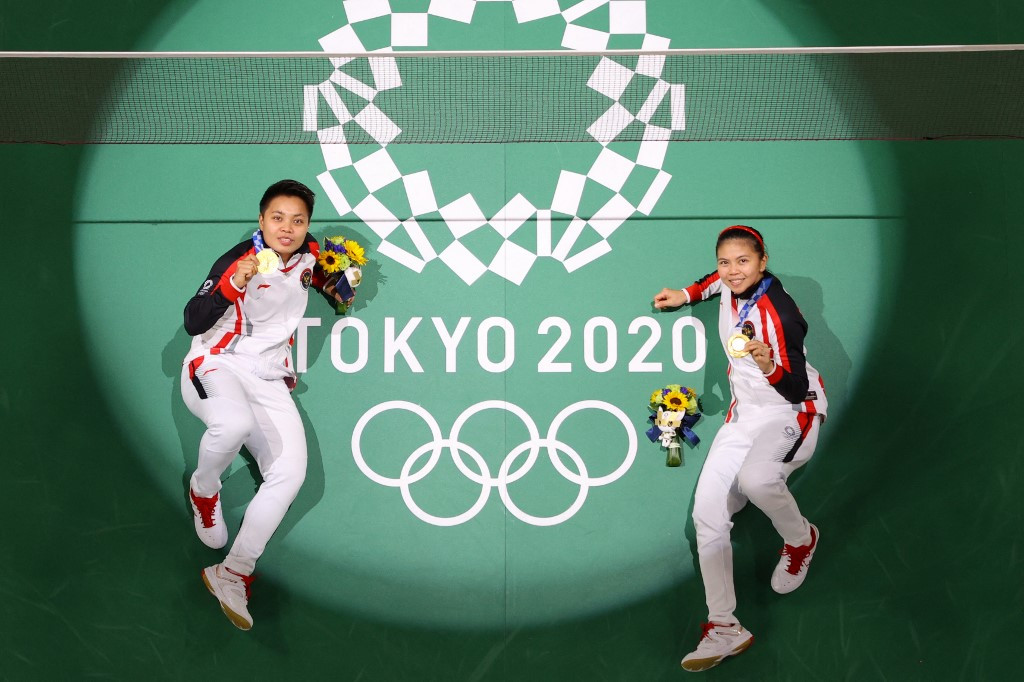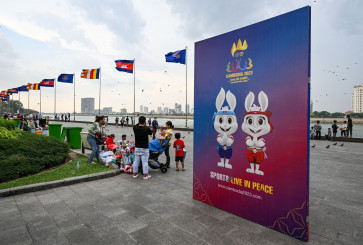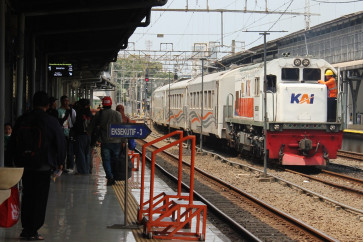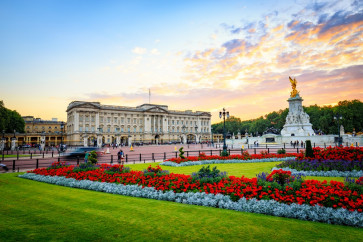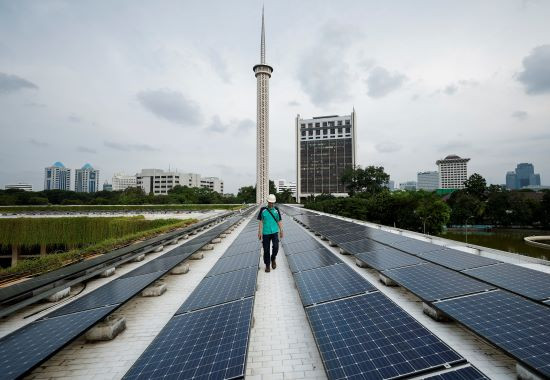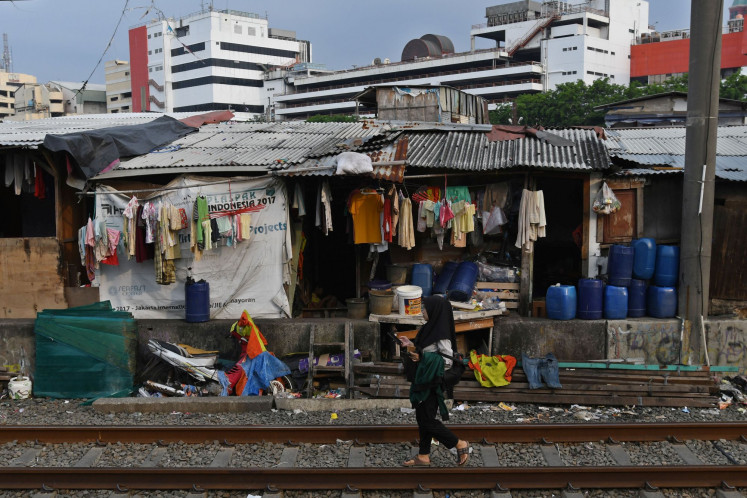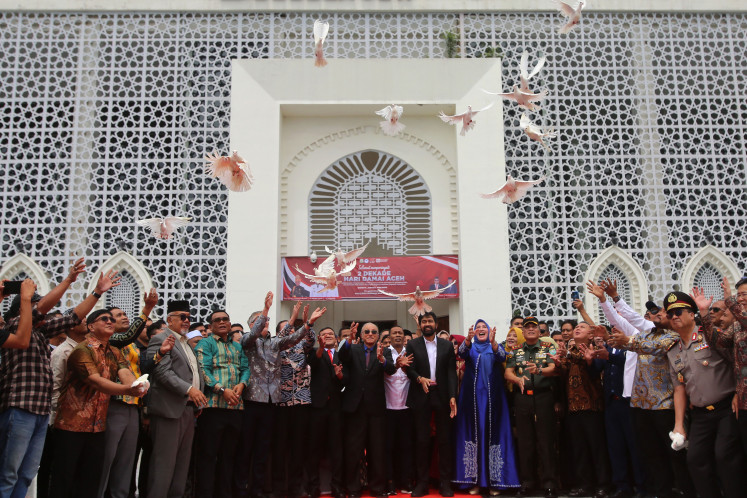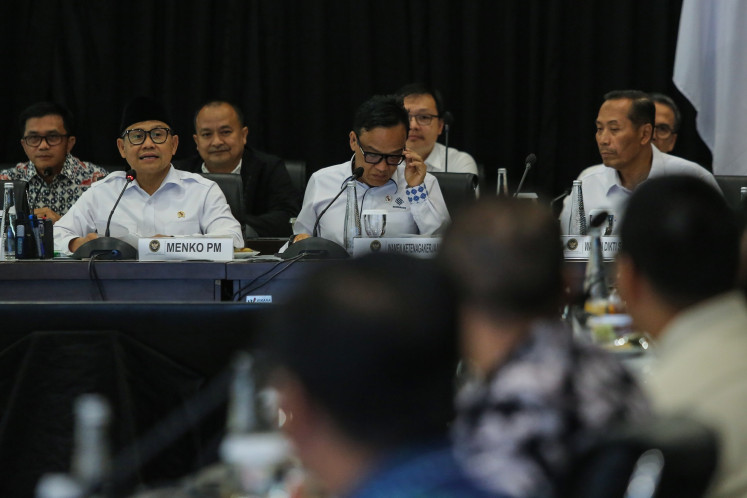Popular Reads
Top Results
Can't find what you're looking for?
View all search resultsPopular Reads
Top Results
Can't find what you're looking for?
View all search resultsFaster, higher, stronger, riskier
Despite the increasing number of infections and public protests in the lead-up to Tokyo 2020, the OIC and the Japanese government decided to go ahead with the Summer Games. Whether it was all worth risking lives and public health during a global pandemic will depend on hindsight, due to arrive in around two weeks.
Change text size
Gift Premium Articles
to Anyone
N
othing is more pathetic in watching an international sports event than seeing your favorite athletes and teams winning Olympic medals in an empty stadium, unable to share the joy and glory of victory with their fans. That’s what happened at Tokyo 2020 because it was held during the COVID-19 pandemic. The competitions went ahead sans spectators due to strict public health restrictions intended to stop the spread of the deadly virus.
The 339 Olympic gold medals were still presented to the winning athletes with the usual pomp and splendor to the tunes of their national anthems, but the medal ceremonies were watched only by a handful of fellow athletes, coaches and sports officials. It was only thanks to livestreaming technology that people around the world could watch the competitions and the medal ceremonies at home or elsewhere on their gadgets. But without the physical presence and noise of cheering crowds, it just wasn’t the same.
The International Olympics Committee (OIC) and the Tokyo organizing committee decided to go ahead with opening the quadrennial multisport event on July 23, just as the transmission rate in the host city was starting to pick up again due to the deadlier Delta variant. They ignored petitions to cancel the event because of health concerns, particularly from the residents of Tokyo. While North Korea stayed away from the Games, many countries sent only a small delegation.
The OIC and the organizing committee, as well as the Tokyo metropolitan government, had already invested so much and postponed the event by one year (which is why it’s still officially called the 2020 Olympics), that backing off would have meant sustaining even larger financial losses. They took a gamble, the repercussions of which we will only learn, in terms of a rise in infections and deaths, around two weeks after the event ended on Aug. 8.
Even without the usual noise of spectators, the Tokyo Olympics still gave us a fine showcase of the world’s top athletes giving their best. In keeping with tradition, some world and Olympic records were broken at the track and field venue, in the swimming pool and at the velodrome.
Tokyo also had its share of "Olympic moments", including when top American gymnast Simone Biles pulled out of competition halfway through citing mental health concerns, and when Qatar's Essa Barshim and Italy's Gianmarco Tamberi decided to share the gold medal in the high jump rather than trying to outjump each other in a tiebreak. These and other athletes showed us that winning is not everything in sports, let alone a major world sporting event, and that sportsmanship and compassion are just as important.
Tokyo 2020 may have lived up to the Olympics’ long-held motto “Faster, Higher, Stronger”, which was modified by the OIC with the addition of “Together” for the Tokyo Olympics to highlight the need for global solidarity during the COVID-19 pandemic.
But since Japan saw its COVID-19 infection rate triple from around 5,000 to 15,000 per day over the three weeks of the Olympic Games, one wonders whether it was all worth it. Did the OIC and the Japanese government overplay their hand and gamble with the health and lives of the people, including the athletes? Maybe “Faster, higher, stronger and riskier” would be a more apt motto for the Tokyo Olympics.
See you at Paris 2024, hopefully under much better circumstances.

